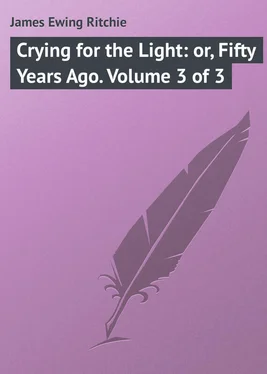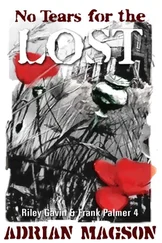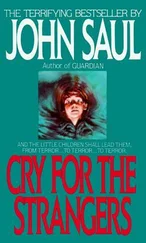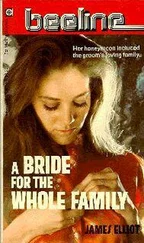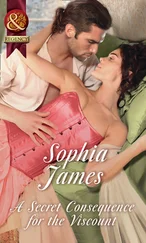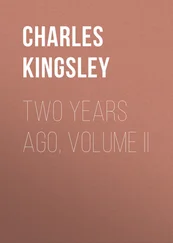James Ritchie - Crying for the Light - or, Fifty Years Ago. Volume 3 of 3
Здесь есть возможность читать онлайн «James Ritchie - Crying for the Light - or, Fifty Years Ago. Volume 3 of 3» — ознакомительный отрывок электронной книги совершенно бесплатно, а после прочтения отрывка купить полную версию. В некоторых случаях можно слушать аудио, скачать через торрент в формате fb2 и присутствует краткое содержание. Жанр: foreign_prose, на английском языке. Описание произведения, (предисловие) а так же отзывы посетителей доступны на портале библиотеки ЛибКат.
- Название:Crying for the Light: or, Fifty Years Ago. Volume 3 of 3
- Автор:
- Жанр:
- Год:неизвестен
- ISBN:нет данных
- Рейтинг книги:4 / 5. Голосов: 1
-
Избранное:Добавить в избранное
- Отзывы:
-
Ваша оценка:
- 80
- 1
- 2
- 3
- 4
- 5
Crying for the Light: or, Fifty Years Ago. Volume 3 of 3: краткое содержание, описание и аннотация
Предлагаем к чтению аннотацию, описание, краткое содержание или предисловие (зависит от того, что написал сам автор книги «Crying for the Light: or, Fifty Years Ago. Volume 3 of 3»). Если вы не нашли необходимую информацию о книге — напишите в комментариях, мы постараемся отыскать её.
Crying for the Light: or, Fifty Years Ago. Volume 3 of 3 — читать онлайн ознакомительный отрывок
Ниже представлен текст книги, разбитый по страницам. Система сохранения места последней прочитанной страницы, позволяет с удобством читать онлайн бесплатно книгу «Crying for the Light: or, Fifty Years Ago. Volume 3 of 3», без необходимости каждый раз заново искать на чём Вы остановились. Поставьте закладку, и сможете в любой момент перейти на страницу, на которой закончили чтение.
Интервал:
Закладка:
‘Speechless, ghastly, wan,
Like him of whom the story ran,
That spake the spectre hound in Man.’
But the captain cries, ‘Go ahead,’ the last bell rings, and we are off. Apparently it is anticipated that our wants will be numerous. We are expected not to venture to sea without a good supply of ‘all round the island sweets;’ ragged urchins offer us lucifer matches, aged females freshly-gathered fruits, and apparently it is presumed we cannot enjoy the day without purchasing a guide to the island, or photographs of the principal attractions. Of course the musicians are on board long before we are, as well as a poor fellow who is expected to keep the company on the broad grin all the trip by means of his songs and chaff.
‘Poor fellow, I pity thee somewhat, in spite of thy sons and grandsons. Thy sow, with a litter of eight “poops,”’ as he calls them; ‘thy readiness to liquor up and spout nonsense. You’re not such a fool as you look, however, and that is a consolation.’
Mountebanks, whether in Church and State, in business, or on the deck of an excursion steamer, generally manage to make their nonsense pay, often better than other men their sense.
‘Rose,’ says Wentworth, ‘let us watch the beauty of Douglas as we steam out of the Bay. In a little while we shall see Snaefell, monarch of Manx mountains. We shall pass the little glen which leads to Laxey, with that wonderful wheel of which we hear so much, and then we are in Ramsey. Leaving Ramsey for the Point of Ayr, a lighthouse familiar to the traders between Barrow and Belfast, we shall note how the aspect of the land is changed, and that a sandy shore has taken the place of the rocks, which, looking across the water, seem to set England and Scotland at defiance. In a little while we shall be off Peel, with its ancient Castle and its hardy fishermen. The further we go, the bolder becomes the scenery. There we shall see a cavern which no one yet has had the courage to explore, but which our captain will tell us leads to Port St. Mary. Then the steam-pipe whistles, and the rocks re-echo the whistle as we float along. Then we come to cliffs white with sea-gulls, who, startled by our approach, flap their heavy wings and fly like snowflakes. As we come to the Calf of Man the picturesqueness of the scene is increased tenfold as the rocks in their wildness guard their native shores. Fain would we linger, but our steamer urges on her wild career, and we must needs go with her. All we can do is to admire from a distance the rough and rugged coast, with its tiny bay, where the swimmer might enjoy his pastime, only disturbed, it may be, by a merman bold, or a mermaid a little bolder, as is the habit of the female, or by a glimpse of the great sea-serpent, which assuredly is to be found, if anywhere, haunting these azure waters, and then we are back in Douglas in time for dinner.’
‘Yes, I know,’ said the lady, laughing. ‘The dinner you will be thinking of all the while.’
‘How unkind of you to say so. We shall have a quarrel if you talk like that.’
‘Is it not time?’ said Rose, as she turned to him a look more bewitching than she had ever cast upon the buckram hero of the stage.
‘Perhaps so. We have been married a week.’
‘Good gracious!’ said the lady archly; ‘only a week! I thought it had been much longer.’
‘I am sure you did nothing of the kind. There, I’ve caught you telling stories already.’
‘But you know we did not get married according to ordinary notions of propriety. We did not go to a fashionable church. We had no fashionable people to see us made one, and there were none to wish us God-speed as we took the cab to the Midland Railway en route for Liverpool. So what can you expect?’
‘And worst of all,’ said Wentworth, laughing, ‘we got married – ’
‘At the registrar’s office,’ said Rose, shrugging up her shoulders and making a face with a sad expression of horror, adding, after an interval: ‘And I don’t believe anyone knows it yet.’
‘So much the better. What has the world got to do with our private affairs? What to us is the world or the world’s laws?’
‘Upon my word, Wentworth, you are talking as improperly as ever.’
‘Yes. I fear I’ve got that bad habit, and I don’t expect I shall ever get rid of it as long as I live. You and I can talk plainly. We need not try to humbug each other. It is little we have to trouble ourselves about Mrs. Grundy. The law has bound us together, but we are bound together by something stronger than the law, I hope.’
‘Hope, Wentworth, is not the word. You know it,’ said Rose, as she lovingly looked into his somewhat grave and worn face.
On board the steamer thus the newly-married couple talked. Marriages are of many kinds. For some we have to thank God, for others, alas! the devil.
Referring to his marriage, William Hutton, the far-famed Birmingham historian, writes: ‘I never courted her, nor she me, yet we, by the close union with which we were cemented, were travelling towards the temple of Hymen without conversing upon the subject. Such is the happy effect of reciprocal love.’ This reciprocal love generally leads to matrimony, and thus it was Rose and Wentworth had married. A good deal is to be said against the institution. Matrimony is not always a bed of roses. If the roses are there, they are often furnished with an intolerable supply of thorns. There can be no doubt of the fact that in many cases matrimony has led to an immense amount of misery. It has kept in chains men and women who had been better apart. It has made for them life dull, blank, sunless, joyless, a thing only to terminate with death. It is hard that men and women thus ill-mated are not permitted to burst their fetters and be free. Take, for instance, the case of Mehetabel Wesley, the younger sister of the celebrated founder of Wesleyanism. Her heart was sensitive and full of love. We know what the mother of the Wesleys was – a stern, hard woman, whose first duty as a mother, according to her own statement, was to break the wills of her children. The father left his wife’s bed because, when he prayed for King William, she would not say amen. None of the girls seemed to have married happily, but this, the youngest and fairest of them all, had a Benjamin’s mess of misery. Her father compelled her to suffer the brutality of a marriage with a low wretch utterly unfit to be her lord and master. Was not her marriage an immorality? Was it not a shame that society should have compelled her to live with such a man? – so much so ‘that her only hope,’ as she told a friend, was death, ‘because we Methodists always die in transports of joy.’ But what do men and women know of each other, as a rule, before marriage? Very little, indeed. Hence so much of the wretchedness of the wife, of the immorality of the man. I fear that it is the married men who chiefly sustain and create the vices of our great cities. Hence the bitter cry of him – our chief poet – the stern Puritan, who wrote in strains that can never die —
‘Of man’s first disobedience and the fruit
Of that forbidden tree, whose mortal taste
Brought death into the world and all our woe,’
on man’s behalf. Hence the earnestness with which he pleaded for relief to him who finds himself bound fast ‘to an image of earth, with whom he looked to be the co-partner of a sweet and pleasant society.’ However, Milton is practically not so much an advocate for divorce as is generally supposed. It is well known that he took his wife back, and they lived happily together till her death, There is generally a modus vivendi , unless the husband and wife be altogether foolish. Neither man nor woman in the long run can withstand true love, and it is hard to break a tie which once seemed desirable, and which is easily made bearable, especially when the young ones come and play around the hearth. Fathers and mothers find it hard to leave their offspring, even if in the commerce of life they have found each other out. The children bring with them the old atmosphere of tenderness and love.
Читать дальшеИнтервал:
Закладка:
Похожие книги на «Crying for the Light: or, Fifty Years Ago. Volume 3 of 3»
Представляем Вашему вниманию похожие книги на «Crying for the Light: or, Fifty Years Ago. Volume 3 of 3» списком для выбора. Мы отобрали схожую по названию и смыслу литературу в надежде предоставить читателям больше вариантов отыскать новые, интересные, ещё непрочитанные произведения.
Обсуждение, отзывы о книге «Crying for the Light: or, Fifty Years Ago. Volume 3 of 3» и просто собственные мнения читателей. Оставьте ваши комментарии, напишите, что Вы думаете о произведении, его смысле или главных героях. Укажите что конкретно понравилось, а что нет, и почему Вы так считаете.
